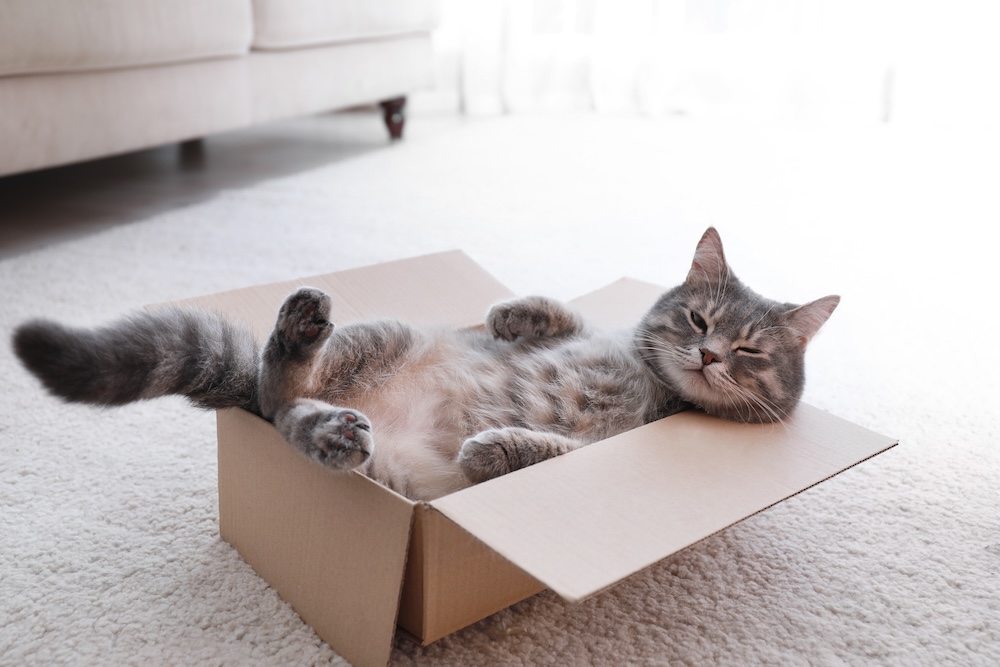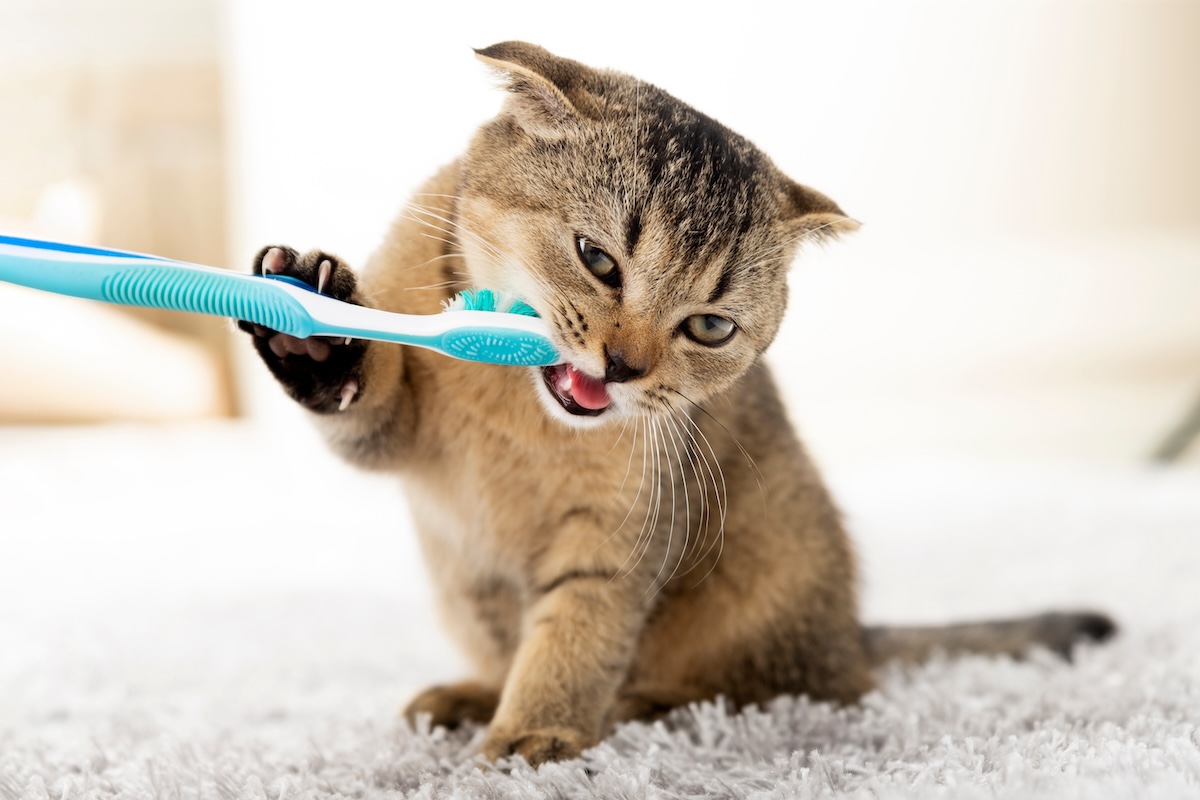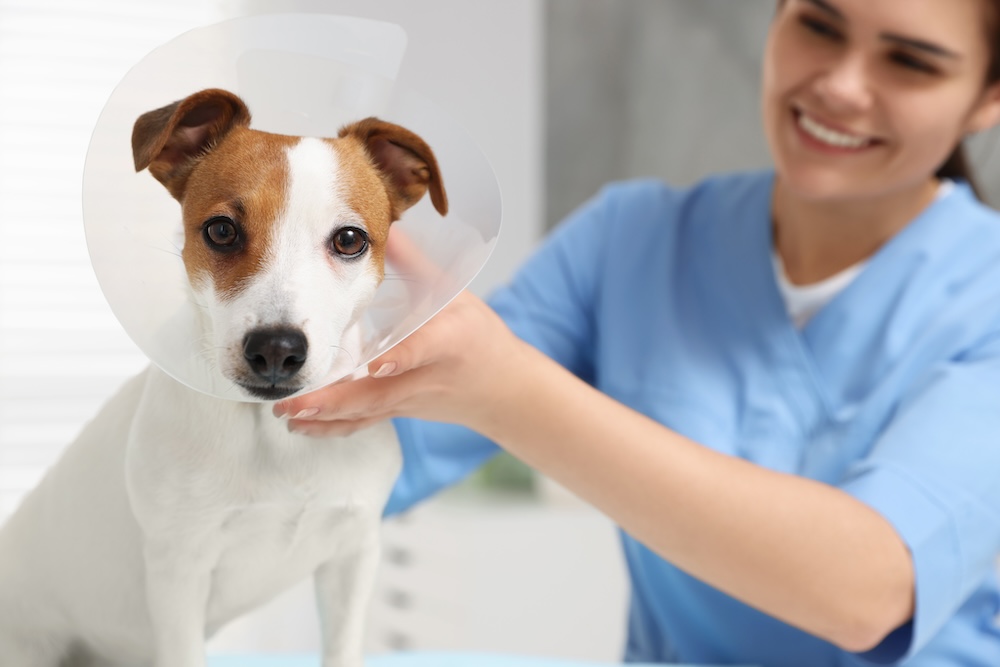Heavy breathing in cats can be a distressing sight for pet owners. Unlike dogs, cats do not typically breathe heavily, so when it happens, it often signals an underlying health issue that needs immediate attention. At Faithful Friends Veterinary Clinic, we understand the importance of recognizing and addressing these signs promptly to ensure your feline friend’s well-being. This article explores the potential causes of heavy breathing in cats and provides guidance on when to seek veterinary care.
Understanding Normal Cat Breathing
Before delving into the causes of heavy breathing, it’s important to understand what normal breathing looks like in cats. Typically, a resting cat breathes quietly and steadily, with 20 to 30 breaths per minute. These breaths should be almost unnoticeable, without significant movement of the chest or abdomen. Any deviation from this norm, especially if it involves open-mouth breathing, wheezing, or labored breaths, warrants closer examination.
Common Causes of Heavy Breathing
1. Respiratory Infections
Upper respiratory infections (URIs) are common in cats and can lead to heavy breathing. These infections, often caused by viruses like herpesvirus or calicivirus, can cause symptoms such as sneezing, nasal discharge, and congestion, making it difficult for your cat to breathe comfortably.
Treatment: URIs typically require supportive care, which may include hydration, nutritional support, and sometimes antibiotics for secondary bacterial infections. In severe cases, antiviral medications might be prescribed.
2. Asthma
Feline asthma is a chronic condition caused by inflammation and narrowing of the airways. Cats with asthma may experience coughing, wheezing, and episodes of labored breathing. Triggers can include allergens such as dust, pollen, or cigarette smoke.
Treatment: Managing asthma involves reducing exposure to triggers and administering medications such as corticosteroids and bronchodilators to reduce inflammation and open the airways.
3. Heart Disease
Heart disease can affect cats of any age but is more common in older cats. Conditions like hypertrophic cardiomyopathy (HCM) can lead to fluid buildup in the lungs (pulmonary edema) or around the lungs (pleural effusion), causing heavy breathing and coughing.
Treatment: Treatment for heart disease may include medications to manage heart function, reduce fluid buildup, and improve breathing. Regular monitoring and veterinary check-ups are crucial for managing this condition.
4. Obstructions
Foreign objects, such as toys, food, or even hairballs, can become lodged in a cat’s throat, leading to difficulty breathing. This situation is an emergency and requires immediate veterinary attention.
Treatment: Prompt removal of the obstruction by a veterinarian is essential. In some cases, surgical intervention may be necessary.
5. Trauma
Injuries to the chest or abdomen from accidents or falls can cause internal bleeding, bruising, or pneumothorax (collapsed lung), all of which can lead to heavy breathing.
Treatment: Trauma-related breathing difficulties require urgent veterinary care. Treatment may involve oxygen therapy, pain management, and surgical intervention, depending on the severity of the injury.
6. Allergic Reactions
Severe allergic reactions (anaphylaxis) can cause swelling of the airways, leading to difficulty breathing. Allergens can include insect bites, certain foods, or environmental factors.
Treatment: Immediate veterinary intervention is critical. Treatment may involve administration of antihistamines, corticosteroids, and epinephrine to reduce the allergic reaction and improve breathing.
7. Cancer
Tumors in the chest or respiratory tract can obstruct airflow and cause heavy breathing. Lung cancer or lymphoma are examples of cancers that can affect a cat’s breathing.
Treatment: Treatment options vary depending on the type and stage of cancer and may include surgery, chemotherapy, and radiation therapy. Early detection and intervention are crucial for the best outcome.
When to Seek Veterinary Care
If you notice any signs of heavy breathing in your cat, it’s important to seek veterinary care promptly. Indicators that require immediate attention include:
- Open-mouth breathing
- Wheezing or high-pitched noises
- Rapid or shallow breathing
- Blue or pale gums
- Lethargy or collapse
Let us Help
At Faithful Friends Veterinary Clinic, we are committed to providing comprehensive care for your feline companions. Understanding the causes of heavy breathing in cats can help you respond quickly and effectively, ensuring your pet receives the necessary medical attention. If your cat exhibits any signs of breathing difficulties, don’t hesitate to contact us for a thorough evaluation and appropriate treatment. Your cat’s health and well-being are our top priorities, and we are here to support you every step of the way.




